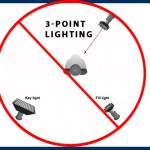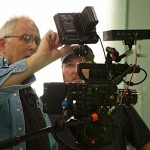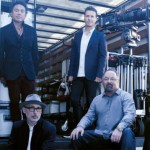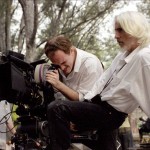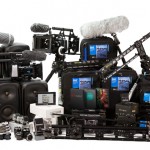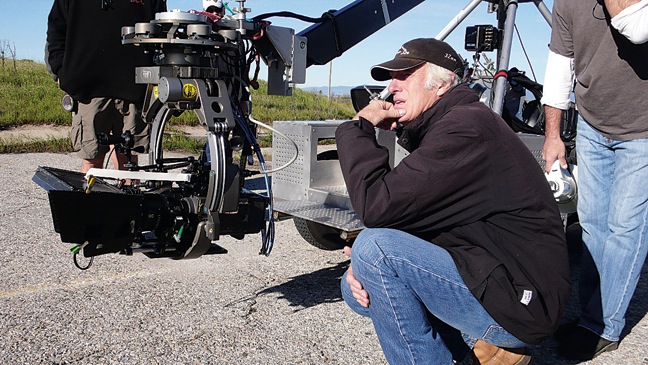
I grew up playing competitive tennis and most players could always be broken down into one of two groups: the talented and the hard worker.
Once in a while you would find a player who was very talented and a very hard worker. You can already guess that these players were quite successful. But often what you would find is that the harder worker with less talent would beat out the more talented player. Cinematography, and dare I say all of Life, is no different.
Do you want to be an awesome cinematographer? You want to make a nice living at doing it? or would you like to watch your work alone on your computer without sharing it to the world? If you want to be like the best guys out there I believe there is a mixture of 3 parts that can get you there (not necessarily in order of importance).
Lets start with the sexiest of the three.
Part One: Beautiful Visuals
Like the talented athlete perhaps your work is just awesome by instinct.You got an eye for it and everything you do gets tons of compliments. Odds are these people are few and far between. Even the greats put in time to develop their skills. This is something i’m seeing increasingly as I talk more and more with top cinematographers – they put in their due to get to where they are. They busted their hump to acquire the skills and “talent” that we see.
Nature or Nurture?
The stigma we have when it comes to the creative fields is that people are either born with the ability or not. I think it’s hugely freeing to know that even if you were not born innately talented in a specific creative medium – if you enjoy it, pursue it and keep it at – you can find yourself swimming with the sharks as well. Eventually, when people speak about you, they will say “he’s so talented!”
So take comfort in knowing that if you enjoy filming and you’re willing to practice, regardless of your natural born talent, you will make beautiful images. Raw talent is nothing more than an accelerator and is often trumped by hard work and persistence.
There is no shortcut.
If you put in the time, learn from others, get on sets, shoot on your own TONS, then your footage will sing like birds you’ll be hearing when you wake up when it’s still dark to get that sunrise shot. You can make up with hard work what you lack in natural skill and in the end you’ll be the one holding the trophy while the talented (lazier) guy looks on.
Part Two: Business/Markteting
I hate to burst our naive bubbles but art and business go hand in hand. What I mean to say is that one fuels the other. The art (your cinematography prowess) is the heart. The business is the brains. Anybody here want to give up one or the other?
When I say business I’m referring to the ability to get paid work, to network and to have your work seen. If you want to succeed as a cinematographer, as a filmmaker, it’s crucial that you make a living out of it. When you get paid for you skills you’re forced to perform at the highest level (or you don’t get called up again), you can continue to focus on your craft with piece of mind (knowing that the bills are being paid) and – this is the fun part – you can afford a few nice toys to have at your disposal so that you can practice whenever you want. An added bonus to a few of these toys is that they usually pay for themselves in the long run since you can rent them out on your shoots. Your toys will also provide added value to your clients (slider, steadicam, crane shots etc) and your day rate can increase respectively.
If you don’t network and get your work seen, people will not discover you and you will not get new work. This all goes under the category and strategy of business. There is a high that comes with getting an email or phone call by somebody who saw your latest work and then wants YOU to film their next project.
Because of your business skills of getting yourself out there, you can now call yourself an Artist. You just got hired to do YOU. To provide images that evoke emotions the way YOU do it. You’re no longer a “video guy” who has a camera like everybody else and is called to simply hit the record button. Now you’re being called because they like your stuff and they want YOU.
This changes the whole game my friend.
Part Three: Telling a Story
Last, but most certainly not least. You’re a story teller. Whether you know it or not. Whether the client knows it or not. That is what you’re being hired to do. Only you’re not telling a story with a pencil and paper but with images. The key to beautiful images isn’t sharpness, dynamic range, framing, frame rates, bla bla bla, – but it’s all of the above coming together to say something, to tell a story.
What is your image saying? Is it saying it powerfully? Is the message obvious and impactful? If you are doing this with your filming, then you are telling a story and you’re doing it in the most engaging way. The camera, the techniques and the whole sh’bang are nothing more then a means to an end. The end goal is to tell a story – to move somebody to feel in a particular way.
The best cinematographers have this in mind on EVERY shot they take and it drives every decision they make with the camera and their surroundings. If you keep in mind “what is this shot saying? Is this the best way to get my point across right now?” with everything you shoot, you’re cinematography will shine – even if there are technical faux pas.
So go out and combine the three above points and watch your results take off. Develop your artistic skills, market yourself, and let each image you shoot tell a story.
Until next time,
Over and out.
Are you doing all three of the above?
Which of the three do you feel you could improve on the most?
Let us know in the comments!






